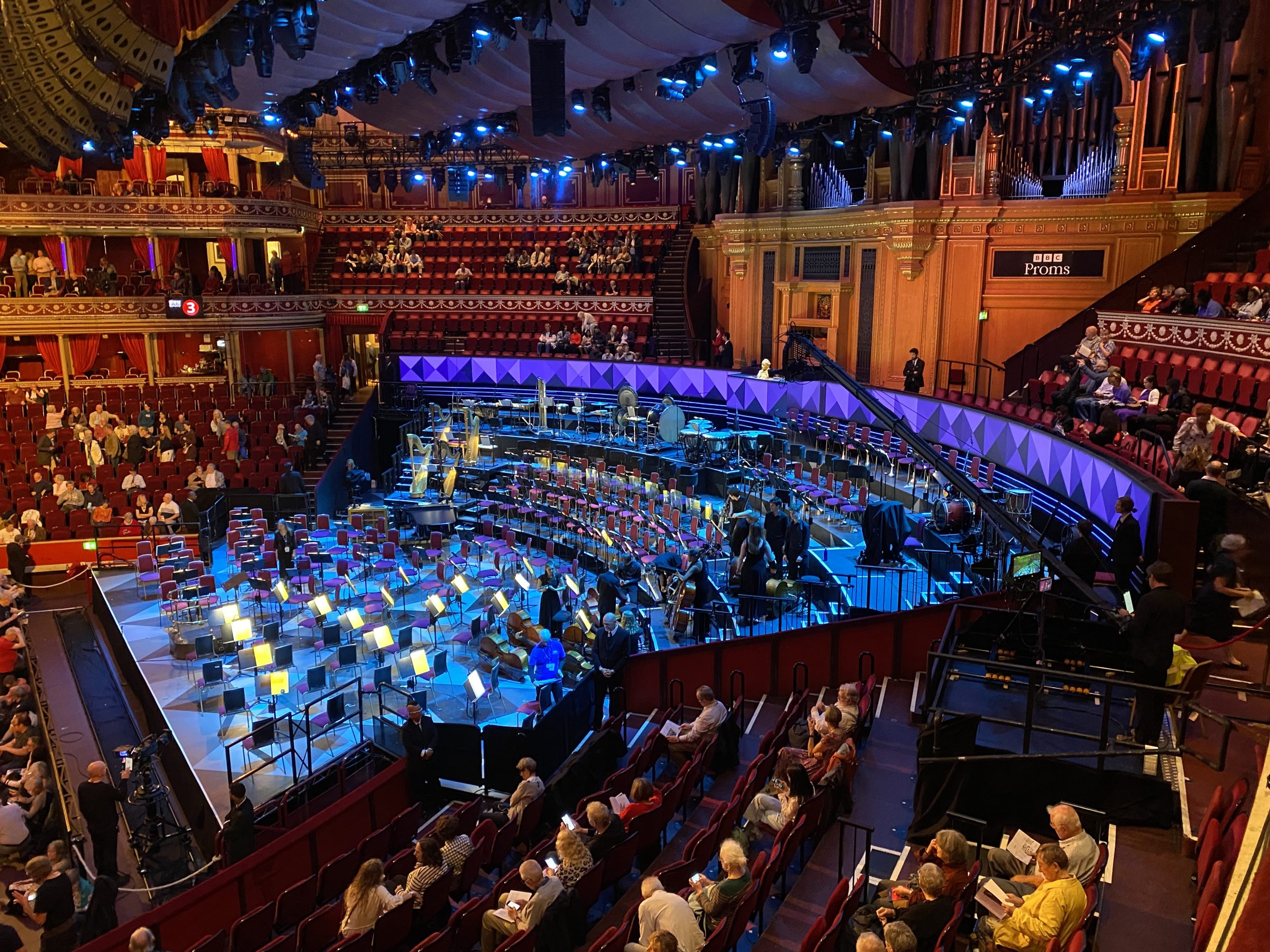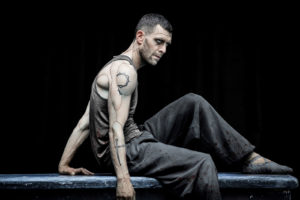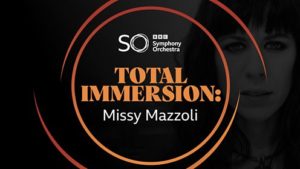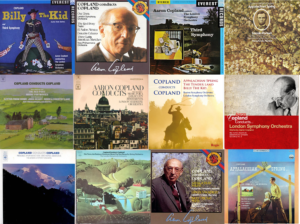
When you’ve had a riveting “short ride in a fast machine” usually the first thing you want to do is get back in the vehicle and have another go!
And that’s what I did. Following on from my Monday night visit to the Royal Albert Hall which featured Copland’s Clarinet Concerto and was headlined by John Adams’ Harmonium, my Saturday trip to London was a second BBC Prom in a week.
This time, the main reason for coming was Copland’s Third Symphony played by The National Youth Orchestera of Great Britain conducted by Carlos Miguel Prieto.
However, there are other motivations for going to a concert with the NYO:
- You will be treated to an enomous orchestra
- They will be very well rehearsed, and
- They will have some fantastic encores in readiness.
Such was the case last night. Apart from the conductor, there was standing room only for only one person as the stage was packed: 4 harps, 10 horns, 8 trombones, 12 double basses, 2 tubas, 7 percussion players and more woodwinds than I have ever seen in one place. I was licking my lips in anticipation.
There was a theme to the works although you might not have recognised it. All of them featured elements of change, death, resilience and renewal.
First up was Symphonic Metamorphosis of Themes by Carl Maria von Weber composed in 1943 by Paul Hindemith. I am intrigued by Hindemith and I admire his work. The pieces I really like (Kammermusik and the Trumpet Sonata) are hard won though. They tend to take quite a few listens to get my talons into the granite and I usually find it hard to form an opinion from one listening. Being based on tunes by Carl Maria von Webber, this was easier listening Hindemith. I found it to be very playful and frequently quite subversive. I was really taken by those flutter tongued flutes and the marvellous timpani. I feel sure that had Shostakovich composed this, he would have been carted off to the Gulag! It did remind me in places of his Symphony No 4 which if it had premiered as planned in 1936, might very well have resulted in that endgame. This was a brilliant vehicle for the NYO as it is essentially a concerto for orchestra with loads of solo opportunities. I am sure this is likely to become a firm favourite and I’ll definitely be listening again as well as finding out more by tuning in to this BBC Discovering Music masterclass.
The standing room only slot was reserved for South African soprano Masabane Cecilia Rangwanasha who sang Richard Strauss’ Four Last Songs that brought the first half of the concert to the interval. Rangwanasha is currently a BBC New Generation Artist and a former Cardiff Singer of the World Song winner. She is every bit the superstar in the making.
Probably, like many, I was surprised that the Four Last Songs were composed in 1948 as it is very much in the earlier Romantic idiom. There is certainly no doubt that plenty of people will have shed a tear during this rendition. It was beautifully done by everyone involved especially the Leader Isabell Karlsson. But not everyone was really involved! In such situations, I feel for the trombones and timpanist who have to sit and wait to play about 3 notes in the fourth movement! (By contrast Hindemith and Copland tend to be much more generous and pragmatic orchestrators. If you are on the stage performing one of their pieces, then you’ll have something purposeful to do. If there’s very little point in you being there, then you won’t have even have made it onto the page let alone the stage!). I can recognise that this music is exquisite and a true lament, but it’s not the sort of music I play by choice and didn’t really pluck at my heart strings.
I’m also not that much of a fan of “He’s got the whole world in his hands” either. That is an ear worm nightmare to avoid in my book! However, the encore arrangement by Errollyn Wallen called The Whole World (which wove in another spiritual Pata Pata) was actually rather lovely. The NYO showed their all round musicality by singing the chorus acapella and got a big cheer from the crowd.
As we sat done for the second half, I said to the fellow concert goer sat by my side “and now for something completely different”.
He said that he was eagerly anticipating the Fanfare for the Common Man and I told him to look out for the constant building up, the crashing down followed by rebirth and renewal in the form of a single instrument. I’ve always thought of the Third Symphony as an amazing story of resilience. The truism that something can be cut back to nothing and then grow again. Now, that really does move me.
I have been watching Earth with Chris Packham on BBC recently. If you haven’t seen it, then you absolutely must – it is truly stunning and immensely thought provoking. Copland’s Third puts me in mind of the epic 4.5 billion year story of the Earth, the creation of an atmosphere from nothingness, the incredibly slow development of a water world and a breathing planet, the first threads of life and then bountiful proliferation, changes that lead to desolation, and moments of cataclysmic violence with mass extinction outcomes, and always the gradual emergence of new life as the cycle repeats.
Copland’s Third could have been written as the soundtrack. You get the desolation from the high strings in the third movement, the frenzied and joyful full orchestra playing sums up the abundance, the gargantuan timpani chords conjure up images of mountain formation and shifting tectonic plates, the brass and percussion provide the moments of calamity and devastation throughout, whereas solos by a flute, oboe, piccolo and harp imply the first tentative emergence of a new species following each apocalypse. And then there’s the human footprint. Right at the start of the first movement you get a prayer (listen for the amens), and boy, oh boy do we need our prayers to be answered! And then we have the Fanfare in the fourth movement which comes as a perfect message of hope.
So for me, with all the bad news on climate change at the moment, Symphony No 3 is a proper Song for the Earth and a true celebration of its power for regeneration. It’s probably one of the reasons that this work never fails to bring a tear to my eye.
The NYO played it brilliantly. I have to mention the double basses. The two chaps (Will Priest and Tom Judge) on the top rung furthest from me (I was on the right side of the auditorium) played with such gusto and spirit that they wouldn’t have looked out of place in a heavy metal band! It means a lot to someone like me, who loves this music, to see performers really going for it and playing it like their lives depend on it.
And this is why it is so powerful seeing young adults performing this music. Copland’s Third is constantly embued with optimism and the notion that whatever happens can always be overcome. And of course, if anyone is going to get us out of the mess we are in, it’s the kids!
Throughout the entire concert the whole ensemble played with swagger and confidence but I have to say the rhythm section stole the show with great work by the timpanists and those double basses. During the raucous applause, both got some of the biggest cheers of the night.
There was one last jubilant and energetic encore which provided a perfect bookend to this concert and my week at the Proms – The King of Swing, Benny Goodman’s Sing, Sing, Sing arranged by Mike Esneault Louis Prima. Members of the orchestra took it in turns to wow the crowd. There were huge cheers for the trumpet and clarinet solos, the double basses were being spun 360 degrees and all the while the percussionists were keeping up a fascinating rhythm!
It’s great that this Prom was being televised and will be available on the Iplayer. Why couldn’t it have gone out live though? Still, I mustn’t grumble. A packed house and the chance for more people to see and hear this music is more than I could have hoped for. I seriously doubt there was a single person in the crowd who didn’t leave with a spring in their step. Thanks NYO and thanks BBC!
Footnotes
- It’s always interesting to look up what Copland thought about the work of other composers and what they thought about him. The font of knowledge on this subject is Howard Pollack’s Aaron Copland: The Life and works of an Uncommon Man. My well thumbed volume suggests that Copland found Richard Strauss’ orchestral writing “overrich” and had little sympathy for it’s “heartless banality”. Pollack also reports that when Copland turned down the offer of a concert ticket in 1970, his reasoning was that of all the composers he had disliked at a young age, Richard Strauss was the worst! As for Hindemith and other European emigres (Krenek, Toch and Weill), it appears that Copland didn’t pull his punches there either, describing works as “dull”, “meaningless”, “conventional”, “monotonous” and “pedantic”. It appears the feeling was mutual. Hindemith, apparently describing Copland’s music as “Pretty pictures, that’s all”!
- I have written extensively on the Third Symphony in the past – see this blog. After many years of relative neglect, this work is finally getting the air time it richly deserves. A recent perusal of the concert listings suggested 17 performances worldwide in the next year in countries as far flung as the US, New Zealand, Germany, Switzerland and the UK. Although, I don’t for one minute believe that this is down to my previous review (although it would be nice to think that programmers are taking note!) it shows that this symphony is starting to really chime with modern audiences outside North America. If you are interested in finding a concert near you then try these three resources
- Bachtrack and do a search for Aaron Copland
- The Official Aaron Copland website
- Boosey & Hawkes – choose Aaron Copland as composer and click Performances





Blog Comments
Will Priest
28th August 2023 at 9:28 pm
My name is Will and I, up until about 23:00 yesterday, was a Bass player in NYOGB. I read your review and it’s lovely, thank you so much (especially for the bass appreciation!) – Tom and I tend to get very physically “stuck in” – a prevalent phrase in the section this year. Thank you again for your kind review.